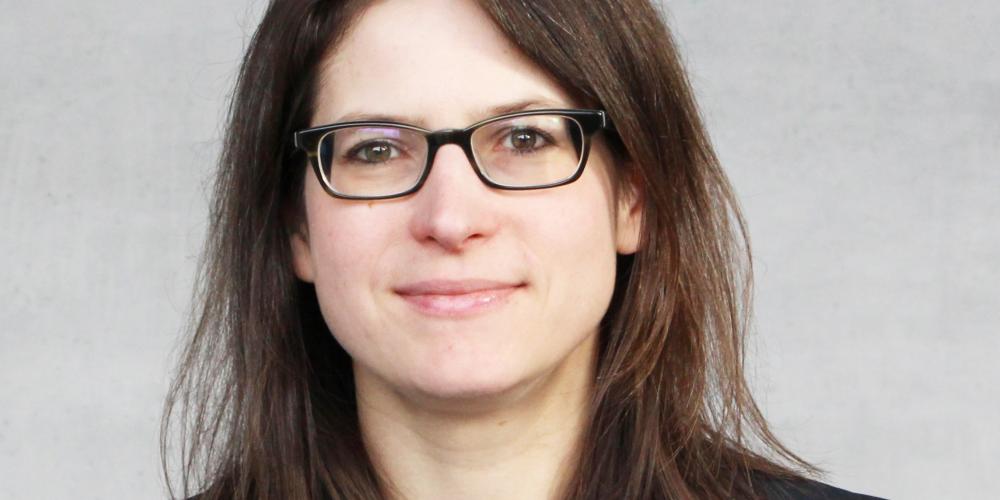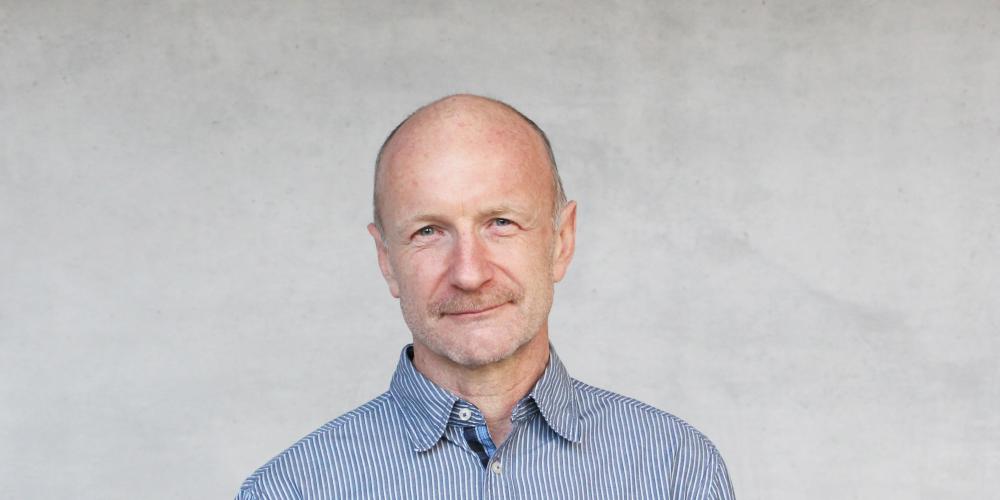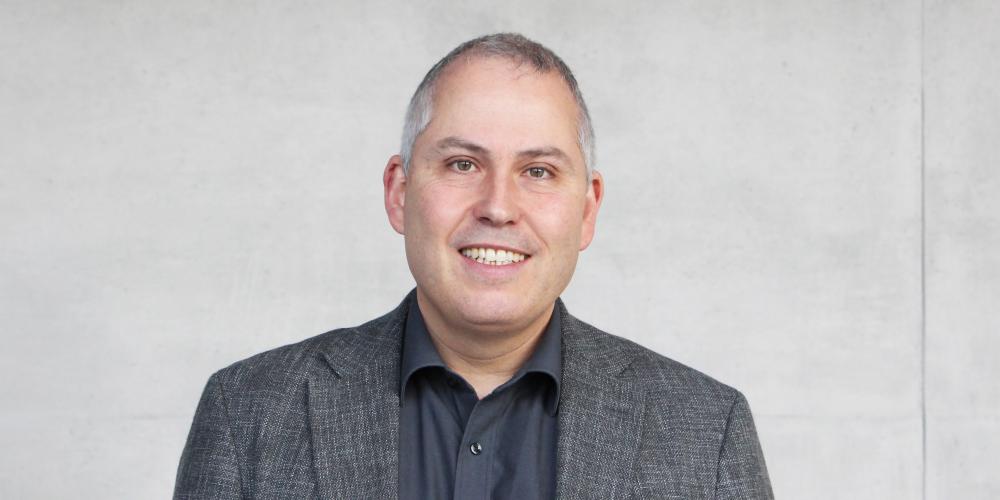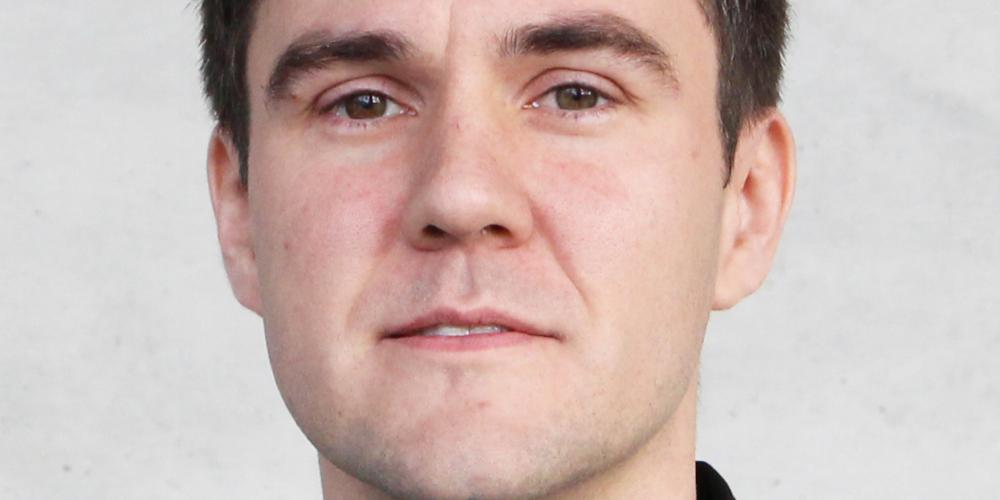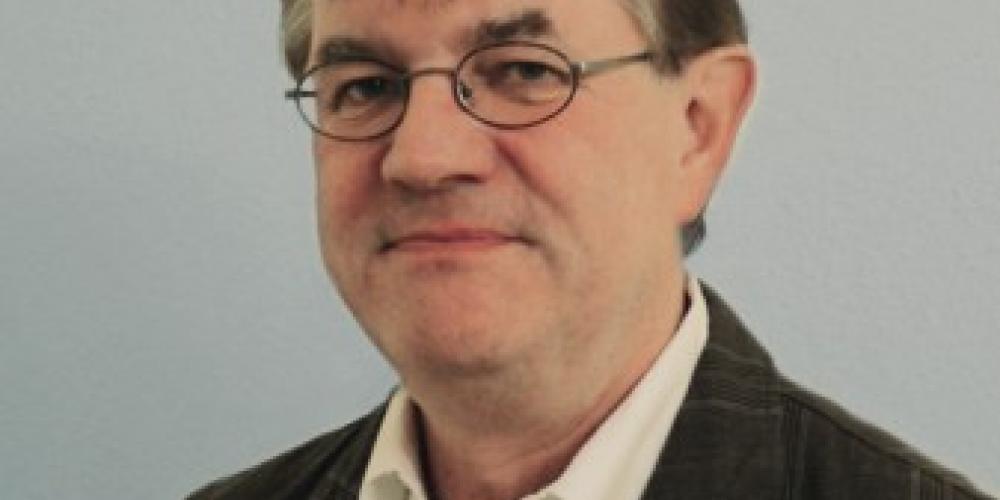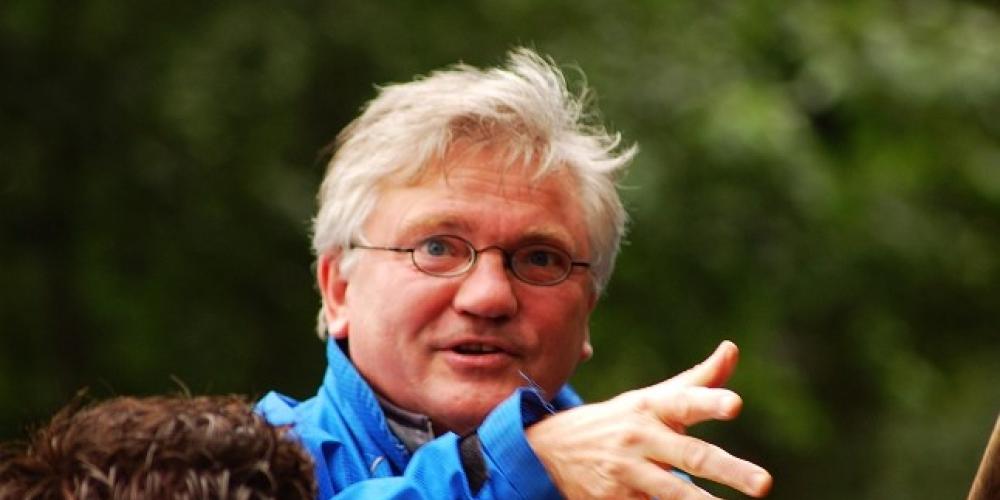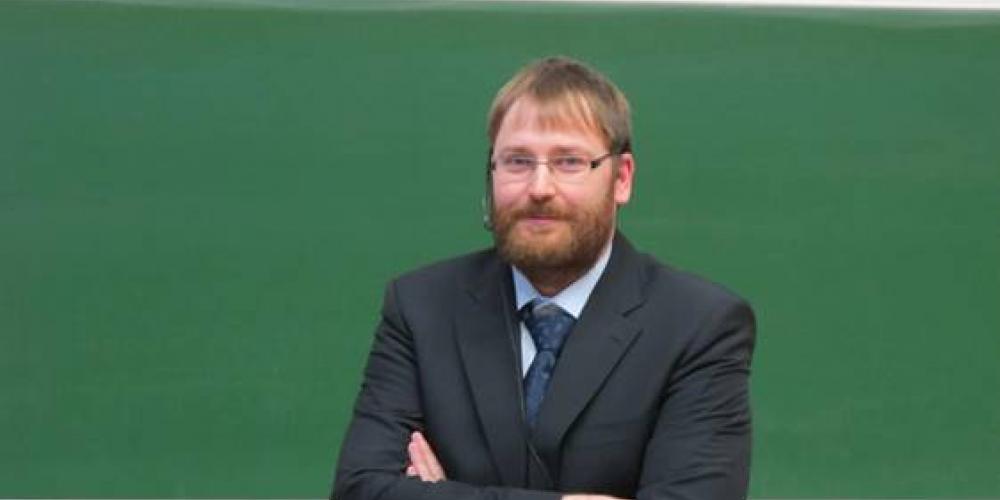Information & Communication Technology
local company
Professor Hafner‘s research in Adaptive Systems is concerned with extracting principles of intelligence from biological systems and transferring them to artificial systems. We focus on the transfer of cognitive skills to autonomous robots. The challenge not only lies in building intelligent autonomous robots, but also in gaining insights into biological systems through robot experiments. Our main research themes are sensorimotor learning, internal models for prediction, attentional processes, and spatial cognition. The methodological approaches cover evolutionary algorithms, neural learning, and information theory. We use various types of mobile robots as research platforms, e.g. humanoid, mobile, flying and underwater robots, as well as software simulations. Professor Hafner is IEEE Senior Member and Principal Investigator in several projects funded by the EU.
- Local company for automation and robotics: Student semester project for the development of a collaborative fleet management system for autonomous transport robots.
Research at the chair of Wireless Broadband Communication systems within the computer engineering group focuses on communication systems for ultra-high data rates. Professor Eckhard Grass and his research group develop and investigate systems operating at ultra-high frequencies and research techniques and methods to improve the efficiency and reliability of wireless communication. The main reserach and developement focus is physical layers (PHY) and MAC layers.
- Complete toolchain for modelling, simulation, design and test of communication systems
- Software Defined Radio (SDR) modules
- Various FPGA platforms and toolchains for FPGA design
- Modules for mm-wave communications
- Measurement equipment such as oscillosocopes, spectrum analyzers, arbitrary waveform generators
- Development of a system for high-speed wireless communication with simultaneous distance measurement for a renowned automotive supplier
- mm-wave communication system with integrated positioning of mobile nodes for augmented reality applications for German industrial equipment supplier
- Joint development of a system for secure wireless communication for industry 4.0 together German industry partners
- mm-wave connections for 5G transport networks with European industry partners
The chair of Visual Computing develops new methods for the analysis and synthesis of image and video data. This includes algorithms for estimating shape, material, motion and deformation from monocular and multi-view camera systems. Both in national and international collaborations, those algorithms are exploited in applications like multimedia, VR/AR, industry, medicine, and security.
- Various cameras
- Multispectral sensors, 3D sensors
- Lighting and calibration systems
- Development of new methods for automatic inspection and damage classification of sewer networks with a water supply company
- Development of augmented reality systems for automobile production processes with a car manufacturer
- Analysis of multispectral imaging for tissue classification in collaboration with medical technology manufacturer
Prof. Weidlich chairs a research group on "Databases and Information Systems" at the Department of Computer Science. Earlier, he held positions at Imperial College London and the Technion - Isreal Institute of Technology. The group focuses on data-driven analysis of process-oriented systems (process mining), approaches for efficient processing of continuous data streams, as well as methods for the design of workflows for exploratory data analysis. The algorithms and systems developed by the group have been successfully applied in diverse domains, reaching from health care through logistics to e-commerce.
Consulting and knowledge transfer in
- Process Mining, data-driven analysis of processes
- Scalable infrastructures for data stream processing
- Design of data analysis workflows
- for a leading US cancer clinic: analysis and improvement of clinical processes based on the data of a real-time-locating-system
- for an international oil and gas group: development of techniques for detecting irregularities in streams of sensor data
- for a manufacturer of enterprise software: design of algorithms for efficient analysis of business process executions
G.F. Schreinzer Positronik, Steinbeis GmbH & Co. KG, Steinbeis GmbH & Co. KG, Pronova Analysentechnik GmbH & Co. KG, newtec Umwelttechnik GmbH
Biosystems engineering works at the interface between engineering and biological production processes. Prof. Schmidt and his team develop engineering solutions for a sustainable agricultural production of crops and other environmental friendly technologies. Prof. Schmidt’s research thus leads to innovative plant farming methods in greenhouses, outdoors and other intensive crop farming systems. Alternative energy supply systems (low energy greenhouses) and closed material cycles for intensive crop farming (water hygiene, sensor systems and algorithms for fully automated nutrient solution supply in closed cycles) are Prof. Schmidt’s research area. His main activity herein is the development of sensors for gas analyses, climate measurement technology and that of software supporting decision making in automation systems. Moreover, the team also provides energetic assessments in complete production systems and parts thereof as well as process analyses.
- Experimental greenhouses with energy and material flow analytics, CO2 enrichment, artificial lights and fog systems
- Plant monitors for continuous measurement of photosynthesis, transpiration, tissue temperature, stomatal conductance, climate measurement, gas analyses (Co2, ethylene), soil moisture sensors
- Freely programmable automation system for climate and process control in greenhouses
- G.F. Schreinzer Positronik, Steinbeis GmbH & Co. KG: Development of an automation system for greenhouses based on measurement details of plants (Phytocontrol)
- Steinbeis GmbH & Co. KG: National collaborative research project „The Low Energy Greenhouse“ („Zukunftsinitiative Niederigenergiegewächshaus“, ZINEG)
- Pronova Analysentechnik GmbH & Co. KG: Development of ionselective sensors for continuous recording of ion proportion in circulating nutrient solution systems; Development of measuring device to analyse phytometric reactions in plants
- newtec Umwelttechnik GmbH: Development of re-circulating irrigation system with reduced phytosanitary risk in greenhouses
Prof. Haerdle’s main research interests are quantitative finance, esp. multivariate methods in banking and finance, dimension reduction techniques, and computational statistics. In his roles both as coordinator of the Collaborative Research Center “Economic Risk” (CRC 649) and director of the interdisciplinary Center for Applied Statistics and Economics (C.A.S.E.) he primarily investigates economic risks on a global scale. Prof. Haerdle’s research aims at facilitating the evaluation of such risks and to reduce uncertainty to improve economic actors’ decision-making.
Prof. Haerdle is Distinguished Visiting Professor Wang Yanan Institute for Studies in Economics (WISE) at Xiamen University, China, as well as director of the International Research Training Group “High Dimensional Non Stationary Time Series” (ITRG 1792). Among other distinctions he received the “Econometric Theory Multa Scripsit Award” in 2012.
- multivariate statistical analysis (factor analysis, cluster Analysis, etc.)
- portfolio optimisation
- risk management
- hedging
- pricing derivatives
- functional data analysis
- non- and semi-parametric methods
- data visualisation
- Ongoing cooperation with and lecturing for leading international financial institutions
- Center for Applied Statistics and Economics (C.A.S.E.): interdisciplinary research centre with the goal to analyze and solve current complex economic problems and those arising in related fields with the help of quantitative methods and computing. Its research subjects range from weather risk, aging societies, crime to property markets
- Collaborative Research Center “Economic Risk” (CRC 649): center of transdisciplinary research where insights from economics, mathematics and statistics converge to analyze economic risks and risk factors. The CRC offers an international platform for discussion of the latest research results and collaborations
TWT GmbH
At the Chair of Software Engineering, Prof. Grunske and his team specialise in methods of software technology relevant to the field of automated development and quality control of software systems. His work also involves probabilistic techniques on the basis of which the probable and less probable behaviour of a program can be modelled. This allows for easier discovery and correction of software anomalies. Such statistic models are used in the monitoring and debugging of programs during runtime as well as in testing software, which supports the development of safe and reliable software systems. Furthermore, Prof. Grunske develops methods that enable a precise definition of the quality requirements of software systems, the formalisation of verification conditions as well as the (technical) safety in embedded systems and process and performance management.
- Software engineering
- Testing and verification
- Statistics/probabilistic methods
- Formalisation of application scenarios in cooperation with TWT GmbH: “Safe.Spec: Quality control of behaviour requirements”
- Using software systems to derive probabilistic models that can be used as specification during the software engineering process: „EMPRESS: Extracting and Mining of Probabilistic Event Structures from Software Systems”
- Development of evaluation methods for probabilistic models as well as machine learning based techniques for the transformation of models: “ENSURE-II: ENsurance of Software evolution by Run-time cErtification”
Prof. Freytag holds the chair of Databases and Information Systems (DBIS). His research interests include all aspects of processing and query optimisation in (object-)relational database systems, developments related to databases (such as semi-structured or graph based data), data quality, big data analyses as well as privacy support in database and information systems. Furthermore, Prof. Freytag is involved in many cooperations using database technology for applications such as geoinformation systems (GIS), bioinformatics, physics and life sciences. In the past, he received the IBM Faculty Award four times for collaborative work concerning databases, middleware, and bioinformatics/life sciences. In 2009 and 2010, Prof. Freytag won the HP Labs Innovation Research Award for his research in the field of databases and cloud computing. He was one of the organisers of the VLDB (Very Large Data Bases) conference in Berlin in 2003, the most important international database conference. From 2001 to 2007, he was a member of the VLDB foundation (VLDB Endowment Inc.). Since 2009, Prof. Freytag has been the spokesperson of the department DBIS of the German Informatics Society (GI).
- Large IBM Server Linux/AIX with DBMS IBM DB2
- Computer cluster with 128 cores
- 30TB storage capacity
- Renowned American IT/DBMS manufacturer: improving existing database management systems (DBMSs) in the area of query optimisation; extending existing ETL tools
- Renowned American IT/DBMS manufacturer: extending DBMS functionality; designing and prototyping performance improvements in query processing; suggestions for future extension of the DBMS products
- Well known German software manufacturer: continuous consulting in the area of database systems, spe-cifically, query processing over several years to improve performance and functionality
- Well known German company: design and implementation of a query processing optimiser for the Lighweight Directory Access Protocol (LDAP) product of this company
- Consulting for various SMEs in Germany in the area of data modeling and process modeling using a state-of-the-art DBMS technology; using DBMS technology within their own products; strategic consulting for a long term use of DBMS technology
